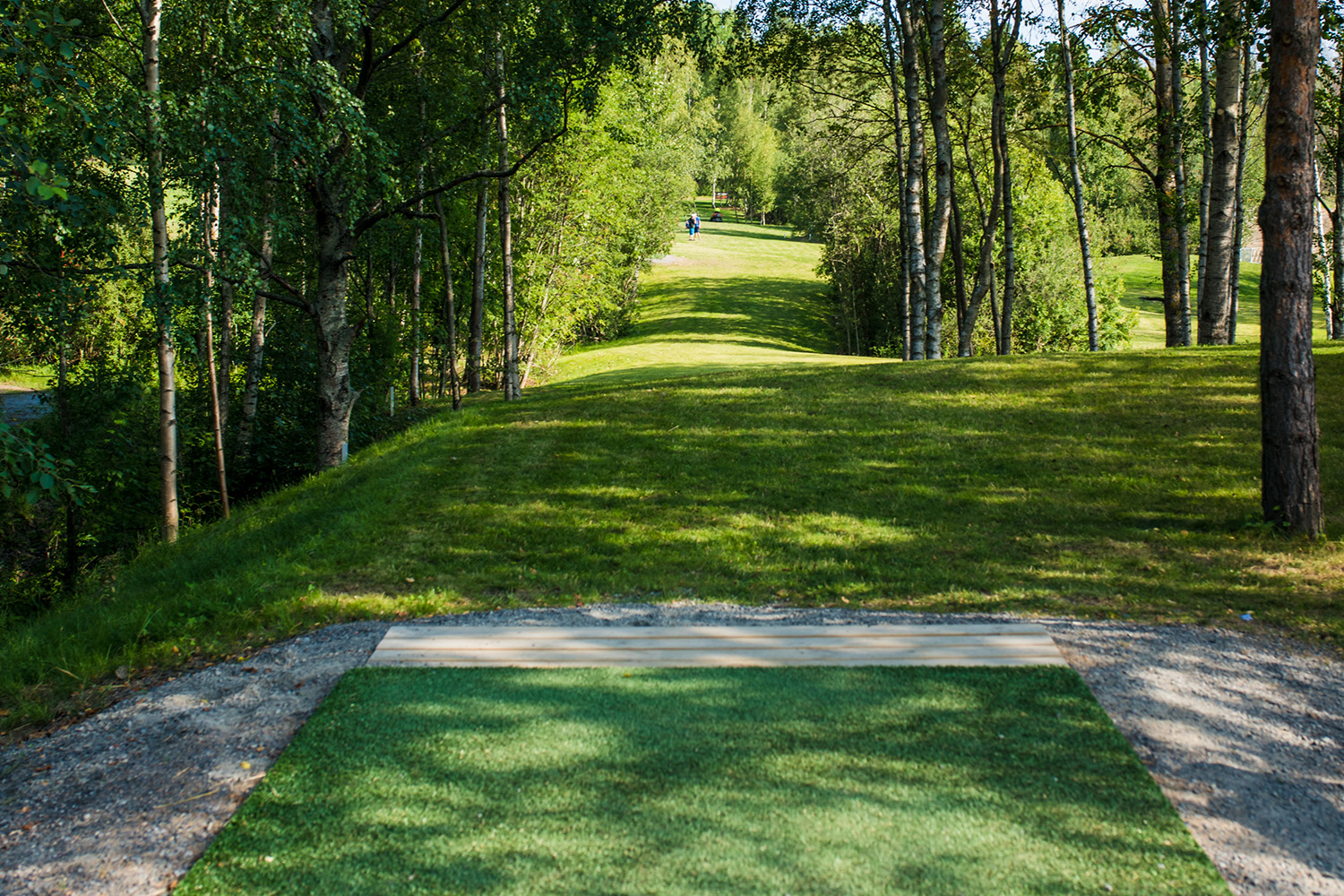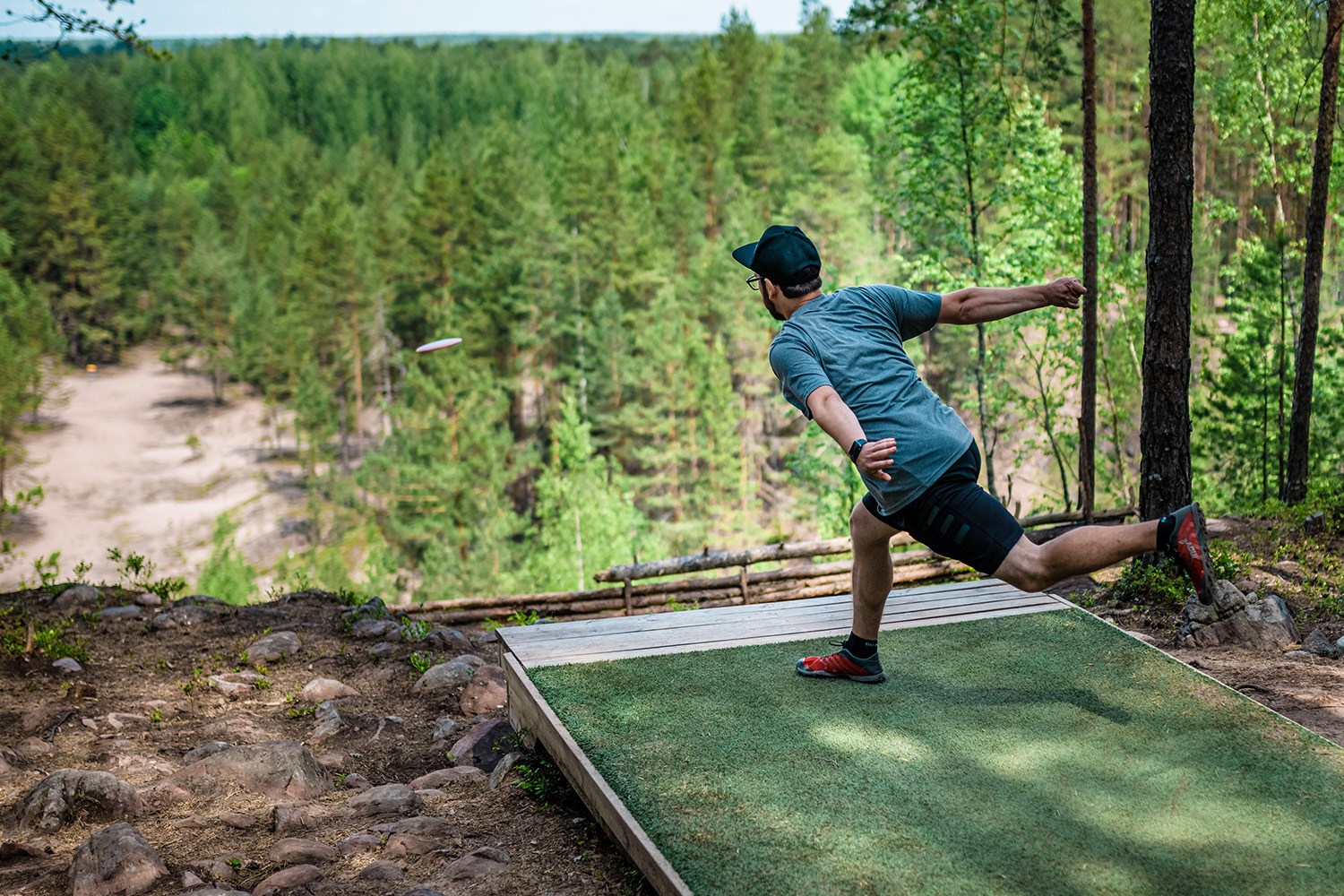What makes turf tees the best for disc golf?
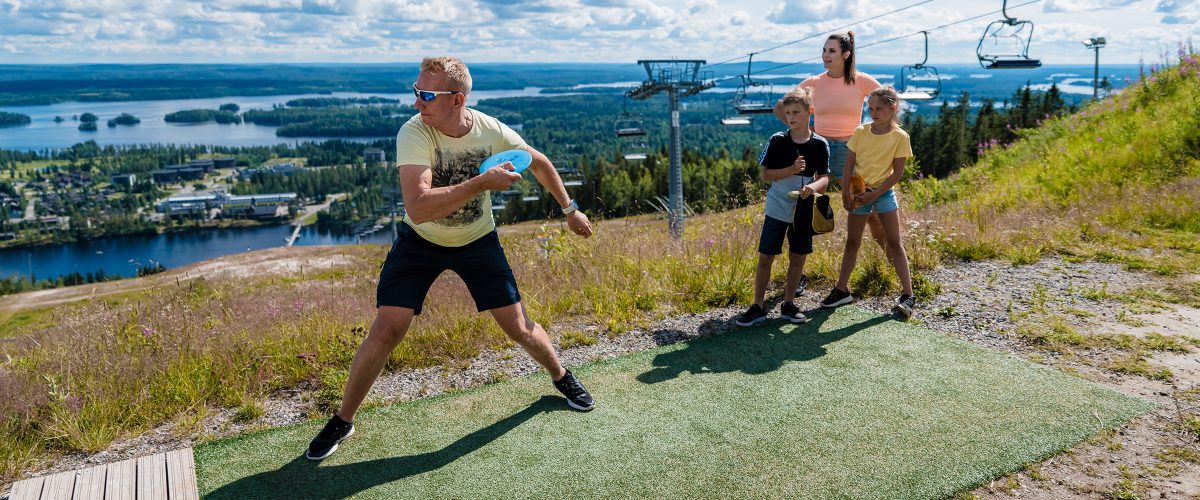
To protect players and the environment as well as to keep visitors coming back, disc golf courses need tee pads. While any well-constructed teeing surface is better than none, we at DiscGolfPark recommend using high quality artificial turf in the vast majority of cases.
What makes turf the best teeing surface for most disc golf courses as opposed to alternatives like concrete? Below, we fill you in with help from experts in the realms of course design, player experience, and disc golfer health.
Why artificial turf and not natural grass for disc golf tee pads?
Before we dive into why artificial turf is the top choice for disc golf tee pads, we should explain why something that emulates natural grass is preferable to the real thing.
The truth is that players do love throwing from grass because it offers consistent grip and is easy on the body. However, players throw from various areas on grassy fairways depending on where their discs land, but tee pads are where every player starts a hole.
Natural grass can’t stand up to the sort of concentrated foot traffic disc golf teeing areas experience.
“Grass is amazing – when it’s intact,” said Avery Jenkins. “A grass tee pad can feel awesome, but it won’t take long before it’s all ripped up, rutted out, or muddy.”
And Jenkins is speaking from lots of experience. He’s a prolific disc golf course designer and former Pro Disc Golf World Champion who has played more disc golf courses than all but a handful of people. His current stats are over 1,500 disc golf courses played in 49 U.S. states and 23 countries.
Speaking as a player, Jenkins said well-installed artificial turf tees offer the things he loves about grass with none of the durability issues.
Turf is better for disc golfers’ bodies
People often describe disc golf as “a hike while throwing Frisbees,” so it’s not surprising that many disc golfers wear shoes made for hiking during rounds. But when they’re playing on tees made of concrete or brick, rotating serious outdoor treads on hard, unforgiving surfaces during their drives isn’t a great combination for joints, muscles, and tendons.
“During the disc golf throwing motion, a lot of stress can potentially be put on the lead leg,” said Andrew Lefler, a co-founder of disc golf training organization Ready Disc Golf. “Having adequate mobility and strength through that lead leg will help you resist injury and stay healthy, but also the shoes you select and the surface you throw from will help you dissipate some of that force.”
Lefler works in rehabbing musculoskeletal injuries, training, and conditioning for a sports performance and physiotherapy clinic in Guelph, Canada. He’s also a Registered Massage Therapist – a closely regulated profession in his region – with over eight years of experience.
He said that both scientific studies and general trends in other sports make a clear statement about the sorts of playing surfaces that are riskiest for players’ health.
“The harder the surface, the more stress that’s involved for the body,” Lefler said.
These are some of the reasons DiscGolfPark’s standard TeePad construction involves installing turf on a bed of compacted, small grain gravel.
Compared to concrete, turf is a forgiving surface that allows players’ feet to rotate more freely without compromising grip. The compacted gravel is stable and doesn’t detectably shift during throws, but the small spaces between it allow more force from players’ movements to be absorbed and not transferred back into players’ bodies.
Turf disc golf tees allow flexibility and mobility
Designers have more flexibility when using turf tees as they can be installed on wooden platforms in areas where geography doesn’t allow for excavation to create a tee pad’s base. Without this option, courses in rocky landscapes like the Åland Islands’ wouldn’t be possible.
Additionally, turf mats can be moved to a new position in one piece if the need arises. The re-installation process will involve a similar amount of work to installing the tee the first time, but the initial investment into the turf pad won’t be lost. Concrete tees, on the other hand, are often difficult to relocate in one piece without the use of heavy machinery.
This means turf tees can protect your investment into a teeing surface, which can be especially useful in public parks where new infrastructure projects could alter course layouts with little notice.
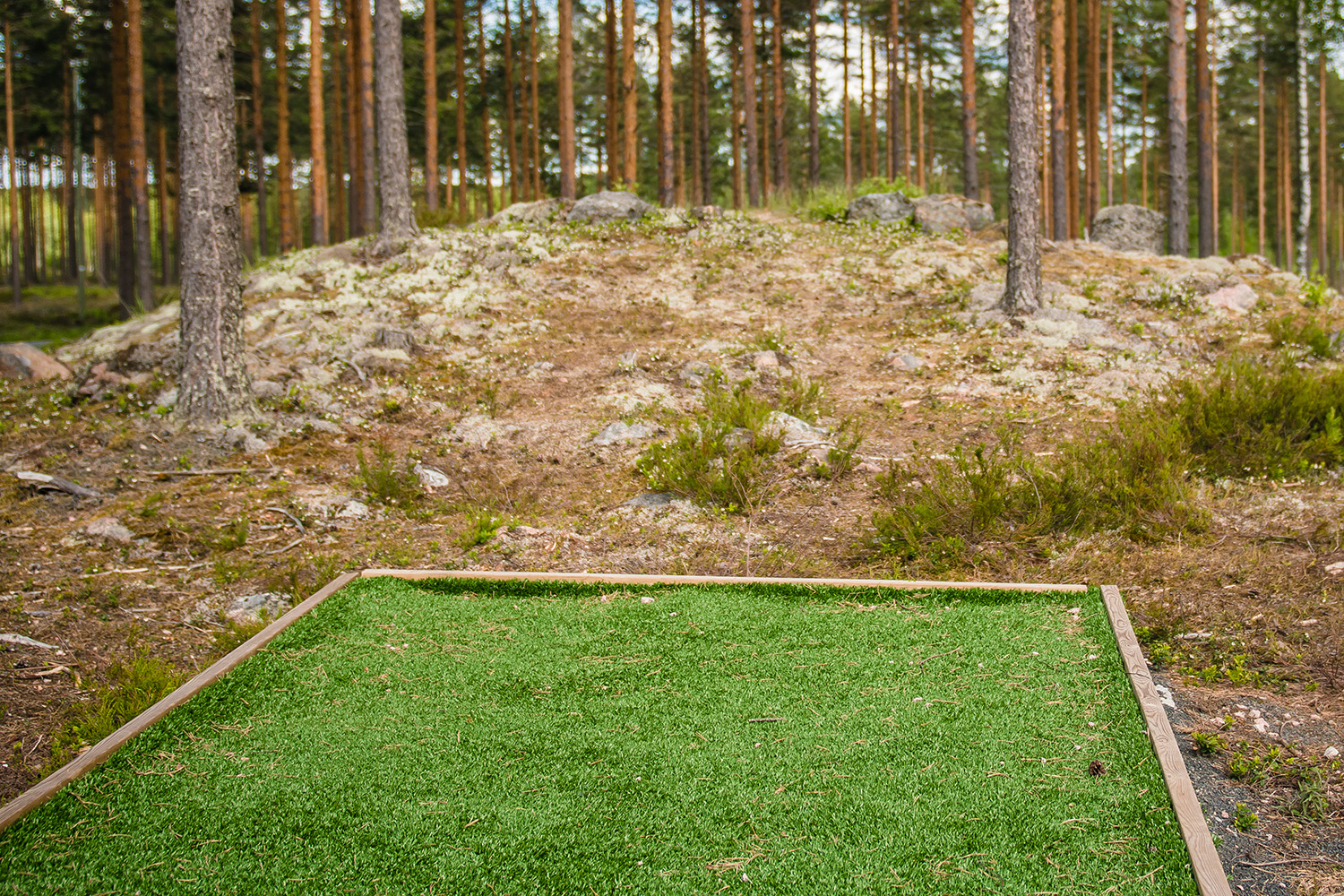
Other reasons to love turf disc golf tees
While mobility and player safety are perhaps the biggest advantages turf offers, they aren’t the only ones. For one, turf is a better aesthetic fit in most landscapes where disc golf is played than options like concrete, brick, or rubber.
Lefler said that he personally preferred courses with turf tees, especially during Canadian winters.
“Just around me, we have rubber mats, we have turf, we have concrete – smooth concrete and concrete with ridges in it,” Lefler said. ” Turf is always the nicest feeling and, living in a place that gets snow, it always shovels off the nicest.”
Jenkins pointed out yet another pro of turf tees: They’re good for your soles.
“One thing I’ll say is that with turf, your shoes last a heck of a lot longer,” Jenkins said. “Playing in the U.S. where concrete tees are more prevalent, I’ll go through a pair of shoes in about a month playing at a high level with lots of practice rounds and tournaments. In Europe, I’d bring one pair of shoes hoping they’d last me. Playing on turf tees the majority of the time for three months, I noticed very little wear. You wouldn’t have those scuffs or abrasions. You wouldn’t rip the toe off them.”
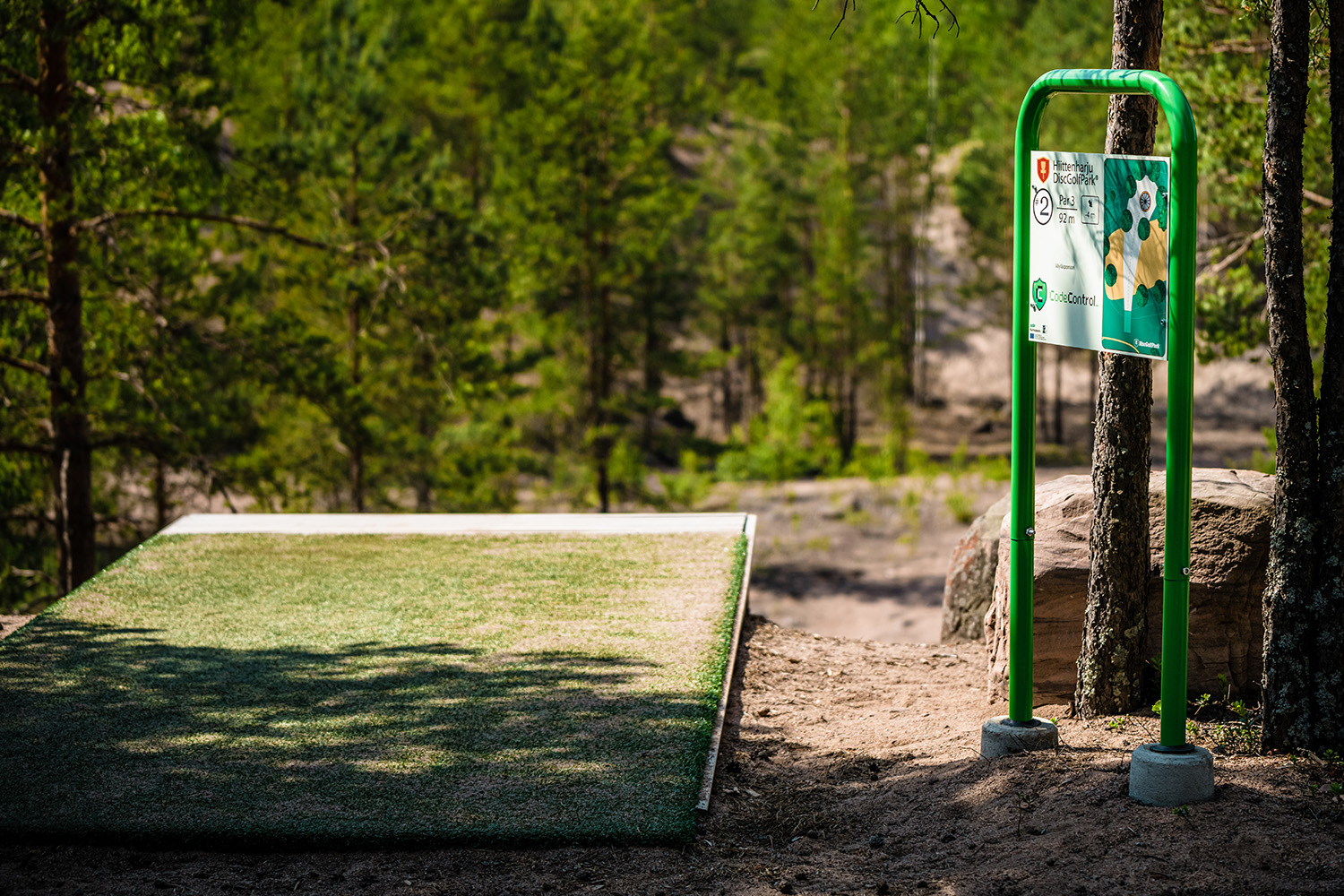
Turf: “The ultimate teeing surface”
Jenkins said that when it’s installed correctly, turf is disc golf’s “ultimate teeing surface,” and that players who don’t like turf tees likely just haven’t played on the right ones yet.
“For those who’ve had a bad experience with turf, you’ve gotta know that not all turf is created equal,” Jenkins said. “A lot of the turf you see out there is reclaimed field turf that’s not treated properly, may not be the correct blade length, and if it’s not mounted or installed correctly, it affects the performance of that turf.”
The turf used in DiscGolfPark’s TeePads specifically fits the needs of disc golfers and course maintainers. It provides just the right balance of grip and give and is extremely durable.
To learn more about our TeePads, how to properly install them, or explore anything related to a disc golf course construction project, feel free to reach out to us at DiscGolfPark.
